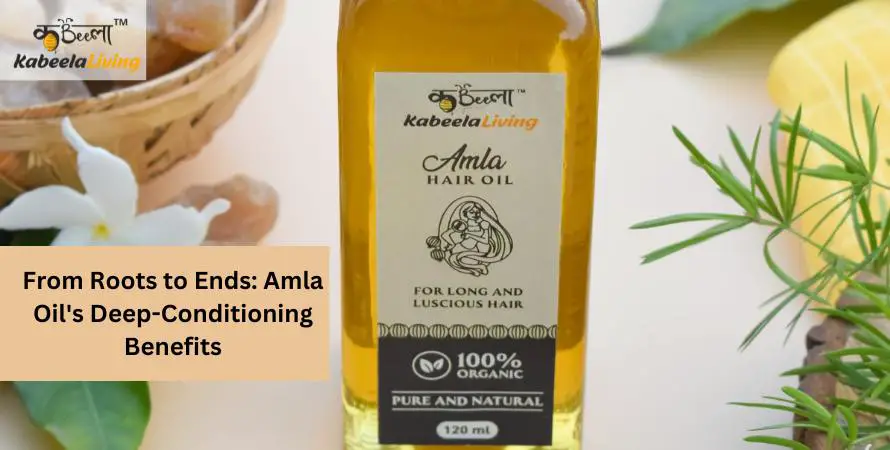Healthy and shiny hair is a coveted beauty standard for many people. Haircare enthusiasts are always on the lookout for new products that can provide their hair with the nourishment it needs to look and feel its best. Amla hair oil is one such product that has gained popularity in recent years due to its deep-conditioning benefits. In this article, we will explore the origins of amla oil, its composition, and how it can benefit your hair.
What is Amla Oil?
Amla oil is derived from the Indian gooseberry fruit, also known as amla, which has been used for centuries in Ayurvedic medicine for its numerous health benefits. Amla oil is made by soaking dried amla fruit in carrier oil such as coconut oil or sesame oil. The mixture is then heated until the oil has absorbed all the goodness of the amla fruit. The resulting oil is a rich source of essential fatty acids, vitamin C, and antioxidants, making it an excellent haircare product.
Composition of Amla Oil
Amla oil is rich in nutrients that are essential for healthy hair growth. It contains high amounts of vitamin C, which helps in the production of collagen, a protein that is crucial for hair growth and maintenance. It also contains essential fatty acids that nourish and moisturize the hair, preventing dryness and breakage.
Amla oil also contains antioxidants that protect the hair from free radical damage caused by pollution, UV rays, and other environmental factors. These antioxidants help in keeping the hair healthy and shiny.
Benefits of Amla Oil for Hair
Amla oil is a versatile haircare product that provides numerous benefits for all hair types. Here are some of the benefits of using amla oil:
1. Promotes Hair Growth
The vitamin C and antioxidants present in amla oil helps in promoting healthy hair growth. Regular use of amla oil can stimulate the hair follicles, leading to thicker and stronger hair growth.
2. Prevents Hair Fall
Amla oil is an excellent remedy for hair fall. The antioxidants in amla oil help in strengthening the hair follicles, preventing hair fall and breakage.
3. Conditions Hair
Amla oil is a natural deep-conditioning agent that can help in moisturizing and nourishing the hair. It can penetrate deep into the hair shaft, providing it with the necessary nutrients and preventing dryness and frizz.
4. Prevents Dandruff
Dandruff is a common scalp problem that can be caused by various factors such as dry scalp, fungal infections, or excess oil production. Amla oil contains antimicrobial properties that can help in preventing dandruff and other scalp infections.
5. Enhances Hair Shine
Amla oil can add shine to dull and lifeless hair. It nourishes the hair from within, making it look healthy and shiny.
Conclusion
Amla oil is an effective and natural solution for deep-conditioning hair. It has been used for centuries in Ayurvedic medicine and has gained popularity in recent years for its ability to nourish, strengthen, and add shine to hair. Amla oil contains essential fatty acids, antioxidants, and other nutrients that promote hair growth, prevent hair loss, and improve overall hair health.
Using Amla hair oil regularly can help individuals achieve strong, healthy, and vibrant hair. It is a safe and natural alternative to chemical-laden hair products that can be harmful to hair and scalp. Whether one has dry, damaged, or oily hair, Amla oil can work wonders in restoring and maintaining hair health.
Overall, Amla oil is a powerful and affordable tool for achieving beautiful and healthy hair. By incorporating it into one's hair care routine, individuals can experience the deep-conditioning benefits of Amla oil and enjoy the long-term benefits of healthy and strong hair.








